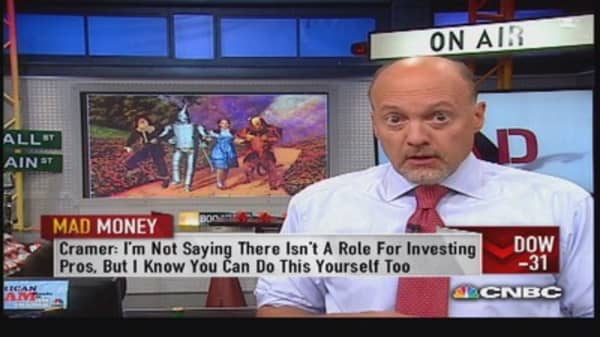Before you put your next dollar in stocks, Jim Cramer would like a word about cyclical versus secular.
The "Mad Money" host is concerned that far too many individual investors don't really understand the differences and therefore risk losses, needlessly. And he doesn't want you to be among them.
Cyclical stocks
"We say a company is cyclical if it needs a strong economy in order to grow; it's cyclical because it depends on the business cycle," Cramer explained. "Steel producers such as US Steel, or Nucor fall into this category, as do machinery companies like Caterpillar or Ingersoll-Rand, along with raw materials plays like BHP Billiton, and chemical companies like a Dow Chemical or a PPG, the old Pittsburgh Plate and Glass."
If you put money to work in cyclical stocks essentially Cramer says you're betting on improvements in the global recovery.
Taken one step further, when Wall Street largely agrees that the global economy is robust, these companies command a greater premium than when the health of the globe is called into question. Therefore, the key to profiting from these stocks is watching economic signs and buying strategically, right before significant signs of improvement.
However, "You don't want to own much in the way of cyclicals when you see the economy's slowing. When that happens they get crushed. That is, they command a much smaller premium because investors fear their earnings could fall apart."





